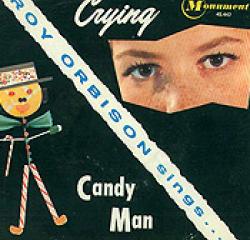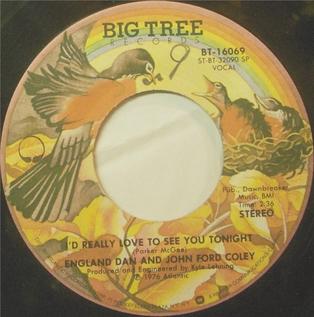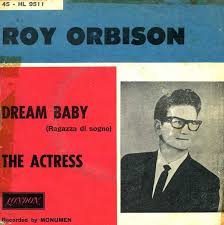"I Drove All Night" is a song written and composed by American songwriters Billy Steinberg and Tom Kelly and originally intended for Roy Orbison. Orbison recorded the song in 1987, the year before his death, but his version was not released until 1992. Cyndi Lauper recorded the song and released it as a single for her A Night to Remember album. Her version became a top 10 hit on both sides of the Atlantic in 1989 and was also her final top 40 hit on the American pop charts. Lauper still regularly performs the song in her live concerts. The song has also been covered by Canadian singer Celine Dion, whose version topped the Canadian Singles Chart and reached number 7 on the US Adult Contemporary chart in 2003.

Nicola James Capaldi was an English singer-songwriter and drummer. His musical career spanned more than four decades. He co-founded the progressive rock band Traffic in 1967 with Steve Winwood with whom he co-wrote the majority of the band's material. He was inducted into the Rock and Roll Hall of Fame as a part of Traffic's original lineup.
"Without You" is a song written by Pete Ham and Tom Evans of British rock group Badfinger, and first released on their 1970 album No Dice. The power ballad has been recorded by over 180 artists, and versions released as singles by Harry Nilsson (1971), T. G. Sheppard (1983) and Mariah Carey (1994) became international best-sellers. The Nilsson version was included in 2021's Rolling Stone's 500 Greatest Songs of All Time. Paul McCartney once described it as "the killer song of all time".

Felice Bryant and Diadorius Boudleaux Bryant were an American husband-and-wife country music and pop songwriting team. They were best known for songs such as "Rocky Top," "We Could", "Love Hurts", and numerous hits by the Everly Brothers, including "All I Have to Do Is Dream", "Bye Bye Love", and "Wake Up Little Susie".

"Blue Bayou" is a song written by Roy Orbison and Joe Melson. It was originally sung and recorded by Orbison, who had an international hit with his version in 1963. It later became Linda Ronstadt's signature song, with which she scored a Top 5 hit with her cover in 1977. Many others have since recorded the song.

"Crying" is a song written by Roy Orbison and Joe Melson for Orbison's third studio album of the same name (1962). Released in 1961, it was a number 2 hit in the US for Orbison and was covered in 1978 by Don McLean, whose version went to number 1 in the UK in 1980.

"Running Scared" is a song written by Roy Orbison and Joe Melson and sung by Orbison. An operatic rock ballad, the recording of the song was overseen by audio engineer Bill Porter and released as a 45 rpm single by Monument Records in March 1961 and went to number one on the Billboard Hot 100 chart. "Running Scared" also reached No.9 in the UK Singles Chart. It sold over one million copies in the US alone. The song was included on Orbison's 1962 album Crying as the final track on the album.

"I Write the Songs" is a popular song written by Bruce Johnston in 1975 and released on his album Going Public in 1977. Barry Manilow's version reached number one on the Billboard Hot 100 chart in January 1976 after spending two weeks atop the Billboard adult contemporary chart in December 1975. It won a Grammy Award for Song of the Year and was nominated for Record of the Year in 1977. Billboard ranked it as the No. 13 song of 1976.

"Angel of the Morning" is a popular song written by Chip Taylor, originally recorded by Evie Sands but which first charted with a version by Merrilee Rush. The song has been covered by many artists including Chrissie Hynde, Dusty Springfield, P. P. Arnold, Connie Eaton, Mary Mason, Guys 'n' Dolls, Melba Montgomery, Olivia Newton-John and most recognizably by Juice Newton.

"You Got It" is a song from American singer Roy Orbison's 22nd studio album, Mystery Girl (1989). The song was released posthumously on January 3, 1989, after Orbison's death from a heart attack on December 6, 1988. The song was issued with "The Only One" as the B-side and was later released with "Crying". The single reached number nine on the US Billboard Hot 100 and number one on the Adult Contemporary chart, returning Orbison to the top 10 for the first time in 25 years. "You Got It" also reached number three on the UK Singles Chart and entered the top five in 10 other countries. Although it is an Orbison solo single, Orbison's fellow Traveling Wilburys bandmates Tom Petty and Jeff Lynne co-wrote the song and played instruments on the record.

"Every Little Bit Hurts" was originally a 1964 hit single for Motown soul singer Brenda Holloway, written by Ed Cobb.

"Hurting Each Other" is a song popularized by the Carpenters in 1972. It was written in 1965 by Gary Geld and Peter Udell, and has been recorded many times by artists ranging from Ruby & the Romantics to Rosemary Clooney.

"Kiss and Say Goodbye" is a 1976 song by American R&B vocal group The Manhattans. It was written by group member Winfred Lovett, the bass singer and songwriter of the group, who did the song's spoken introduction. The song was recorded for the album The Manhattans, released in 1976 by Columbia Records, and was released as a single in March of the same year. "Kiss and Say Goodbye" became a worldwide success, appearing in the musical charts of countless countries, a Top 10 hit in many countries, including No. 1 in the US, Belgium, Netherlands, New Zealand, and in Europe (European Hot 100 Singles). With the exception of Adult Contemporary Chart, "Kiss and Say Goodbye" was ranked number 1 in US on all Pop Singles Charts and on all R&B Singles Charts. The song was one of the biggest hits of 1976 and of the 1970s.
"Let the Good Times Roll" is a song that was recorded by Shirley and Lee in 1956. This song was written by the duo, Shirley Goodman and Leonard Lee.

"Love Will Keep Us Alive" is a song written by Jim Capaldi, Paul Carrack, and Peter Vale and produced by the Eagles, Elliot Scheiner, and Rob Jacobs. It was first performed by the Eagles in 1994, during their Hell Freezes Over reunion tour, with lead vocals by bassist Timothy B. Schmit. This is the last single to feature Don Felder, who was terminated from the band in 2001.

"I'd Really Love to See You Tonight" is a song written by Parker McGee and recorded by England Dan & John Ford Coley from their 1976 album Nights Are Forever. It eventually peaked at No. 2 on the Billboard Hot 100 chart for two weeks, behind Wild Cherry's "Play That Funky Music" and No. 1 on the Easy Listening chart. Billboard ranked it as the No. 21 song for 1976. It also reached No. 26 on the UK Singles Chart.

"Oh, Pretty Woman", or simply "Pretty Woman", is a song recorded by Roy Orbison, written by Orbison and Bill Dees. It was released as a single in August 1964 on Monument Records and spent three weeks at number one on the Billboard Hot 100 from September 26, 1964, the second and final single by Orbison (after "Running Scared" to top the US charts. It was also Orbison's third single to top the UK Singles Chart.

"Dream Baby (How Long Must I Dream)" is a song written by Cindy Walker which was first recorded and released by Roy Orbison originally as a non-album single in 1962. It was a big international hit for Orbison, reaching number 2 in both the Australian and the UK singles charts and number 4 in the U.S. Billboard. It was also a top ten hit in Canada and Norway. Five months later, "Dream Baby" was included on Orbison's Greatest Hits compilation LP.

"So Sad (To Watch Good Love Go Bad)" is a song written by Don Everly, which was released by The Everly Brothers in 1960. The song was later a country hit for multiple artists in the 1970s and 80s.

"Candy Man" is a song by Roy Orbison, released as the B-side to his international hit "Crying" in July 1961. It was later covered by British beat group Brian Poole and the Tremeloes, becoming a top-ten hit in the UK.




















